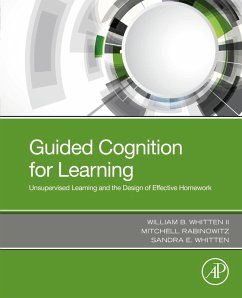Guided Cognition for Learning: Unsupervised Learning and the Design of Effective Homework details a new instructional design approach called Guided Cognition where homework tasks are designed to guide learners to engage in specific, observable cognitive events that are hypothesized to elicit underlying theoretical cognitive processes that result in learning. Outlining the results of twenty-six experiments completed over the course of eight years, the book tells a significant story about the generality of Guided Cognition instructional design to improve comprehension and recall by students of varying ages and ability levels.
- Explains why unsupervised learning is a major part of education
- Reviews the history of homework in American education
- Shows that quality of homework is more important than quantity
- Illustrates how Guided Cognition-designed homework improves learning for literature and mathematics
- Compares Guided Cognition to other types of instructional design
- Analyzes how the surface structure of Guided Cognition tasks relate to underlying psychological processes
- Discusses the effects of the internet on learning
- Presents applications that facilitate lifelong learning
- Includes an appendix of frames and guidelines for authoring Guided Cognition questions and tasks
Dieser Download kann aus rechtlichen Gründen nur mit Rechnungsadresse in A, B, BG, CY, CZ, D, DK, EW, E, FIN, F, GR, HR, H, IRL, I, LT, L, LR, M, NL, PL, P, R, S, SLO, SK ausgeliefert werden.


